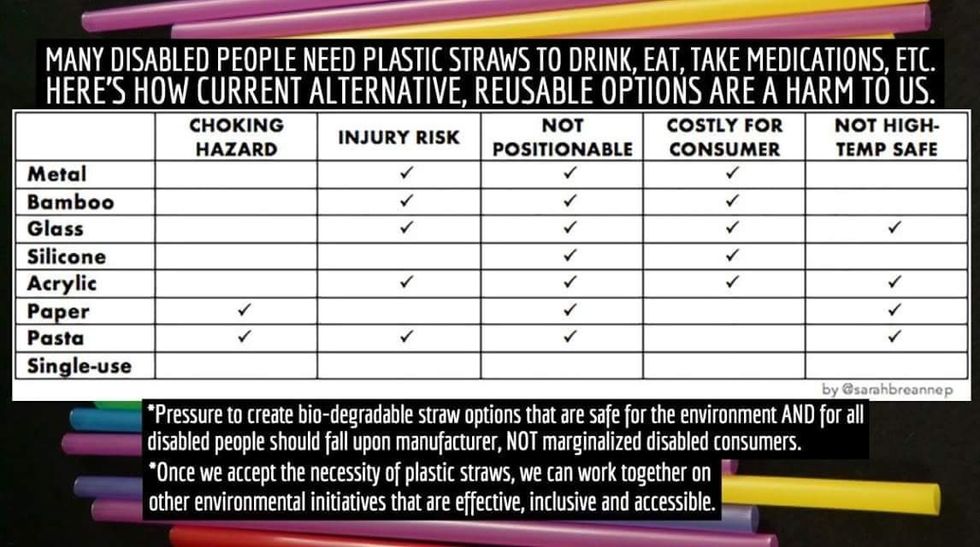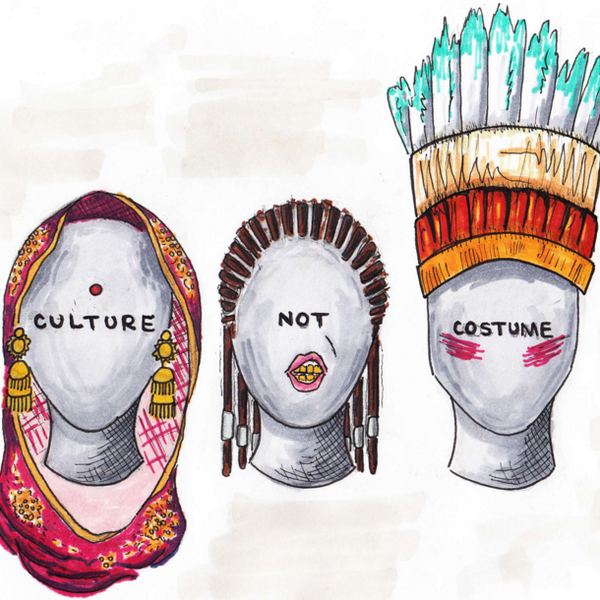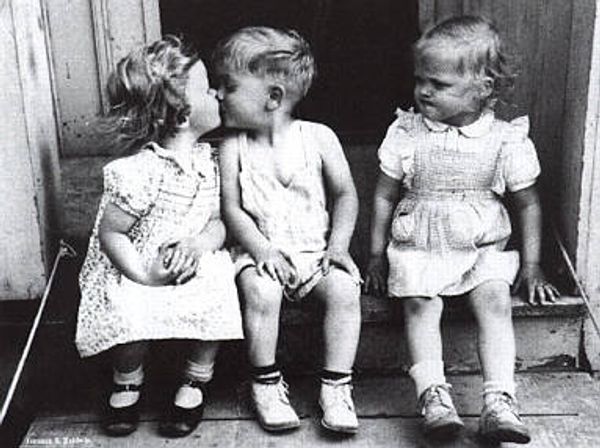Straws suck. They pollute the oceans and are incredibly wasteful. Now, in an age where we are finally beginning to realize the need for sustainability, more and more cities are banning plastic straws. Seattle, Miami Beach, Oakland, and a handful of other cities have bans in action while New York City and the states of Hawaii and California have legislation pending. Starbucks is looking to be straw-free within two years, with many companies following suit.
Banning single-use products is awesome, right? Not for everyone.
Straw bans ignore the fact that many people are unable to drink without straws. People with disabilities, stroke survivors, and the elderly are just a part of a population that needs straws and are rallying against the discriminating straw bans.
The response to this has been a call for reusable or biodegradable straws. A great idea in theory, however, straw alternatives are not an option for many. Reusable metal straws are likely to injure those with jaw and mobility issues. Glass straws are likely to be shattered. Paper straws do not hold up in hot liquids and often disintegrate after saturation. Plant-based plastic runs a risk of allergic reactions. This chart shows the risks of straw alternatives.
An estimated 8 million metric tons of plastic end up in our oceans every year. That is a MASSIVE issue, but single-use plastics such as straws are not the problem. 640,000 tons of the plastic that ends up in the ocean each year is "ghost gear" - old fishing equipment left in the ocean by commercial and non-commercial fishing operations, posing much larger threats to marine wildlife as they get trapped in the nets left behind. Plastic bags, water bottles, can rings, Styrofoam, fishing equipment - all breaking down into toxic fibers or being mistaken for food by marine life. So why are we focused so hard on straws?
We live in an age of continuous consumption and planned obsolescence. How many cell phones and other electronics have you had in your lifetime, tossing them as soon as the next model drops? How many clothes do you buy, taking the old to thrift stores where it may be reused or shipped to foreign countries where the "donations" are piling up and ruining economies? How many pre-packaged, plastic-wrapped items have you purchased in the last month? The last week? Sure straws add up but not as much as everything else we mindlessly toss into the trash. Not to mention industrial waste from factories and corporations or air pollution resulting in toxic rains over the oceans. Plastic straws? A minuscule drop in the ocean of our environmental problems.
I'm not shaming anyone - I'm as guilty as the next person. I try my best to remember my reusable shopping bags, to buy things to last, to compost and recycle. But I have contributed just as much to plastic pollution as the average person. My carbon footprint is no smaller than yours. And while straw bans may make us feel better about ourselves, they do little to solve the real problems.
So, if you can refuse a straw, do so! But don't advocate for a ban that disadvantages those who need straws. If you are able-bodied don't take away the rights of those who are not. Advocate for stronger environmental legislation and sustainable practices, vote for people who care about our planet, and please remember to consider those who have to live a little differently than you and me.




















